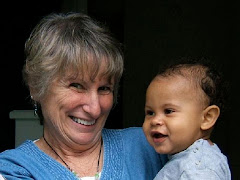In early October, on my facebook page: Challenging Children, I posted a challenge to teachers to work for the following couple of months, until winter break, with the child or children in their classroom who provided the greatest challenges. Here is a summary of those tips:
1. Continuously be aware of where children are cognitively, chronologically, AND emotionally. You may have a 5th grader who is behaving like a 3 year old…that child is STRESSED. When we stress, we regress. To admonish a child who is in a stressed out state is foolhardy at best and truly unaware at the least.
2. Be a mentor: if you can’t be a mentor for the child, identify another staff person who can be. It will be someone that the child can communicate with. It shouldn’t be someone who will tell them how they should behave; it is someone who will listen.
3. Create structure and routine: predict that when
the routine is going to be disrupted the stressed student/s will regress. Immediate example is a substitute in the class whether it is the classroom teacher or the specials teacher. Consistency and predictability ...are important factors for at-risk/traumatized children.
4. Learn to RESPOND rather than REACT in the midst of behavior issues? Do 3 things: Reflect, Relate,Regulate
5. Be an investigative reporter when it comes to the difficult child/children in your classroom. Ask WHO? WHAT? WHERE? WHEN? AND HOW? WHO was around when the child had the problem? WHAT happened before, during and after the incident? WHERE do the incidents occur? When do things happen? And HOW does it escalate?
6. To be successful with students there is more at stake than a mastery of subject matter and teaching methods, it is all about RELATIONSHIP. If you don't have a relationship with your students, your will not be able to influence them. And if you can't influence them, there will be no learning. If there is no relationship nothing else can matter.
7. When kids are faced with a stressful situation, they move into freeze, fight, flight. Actually, everyone does. There is a momentary freeze to assess the perceived potential danger and then we stay frozen, or we fight, or we leave.
8. Connect in relationship with your students. Negative behavior arises from an emotional state of stress and fear. It is not rational nor logical, it is emotional. Behavior modification is logical and cognitive and will NOT "take" with the kid who is reacting from a state of stress and fear.
9. Be attuned to where each child is in terms of affect; note where you are emotionally when you approach that child who is seemingly off kilter. Be aware that they could be triggered by any sight, smell, touch, sound. Be attentive be that detective searching for the who, what, where and when dysregulation occurs and then be that wise teacher and reach out rather than pushing that child away to the principal and perhaps ultimately in-school or out of school suspension.
10. Let's talk negative feedback loop...you come into classroom from weekend of power shopping, cookie baking, bank account shrinking and you are on the edge. Kids come in, some of them dealing with home stresses: not enough money for the holidays, Grandma's sick and not coming ...for Christmas, auntie's husband's in jail for robbing someone...and progress reports were not good. When teacher's dysregulated state, meets students dysregulation...you are in a negative feedback loop. And it is manifested in the very cells of the body. It is up to you, the adult, the regulator of stress in the classroom to step back, consider where you are at emotionally, think about where in your body you are feeling the stress... and calm yourself so that you can be there for the student/s in your classroom who are at these moments at the emotional age of very young children.
11. The reason kids really enjoy a certain teacher over others is because the teacher LISTENS to students; he RESPECTS students; students are allowed to express THEIR opinions. The teacher LOOKS her students in the eye when she talk to them; the teacher SMILES at his students, and SPEAKS to students when... she sees them in the hall or in the cafeteria or even on the street.
12. Assess your classroom environment for too much stimulation; is there too much instruction time for the challenging student/s; do some assignments need to be simplified for the challenging student/s?
Those of you reading this blog who are parents, I urge you to give some of these suggestions to your child's teacher if he or she struggles with behavior issues in the classroom.
Sunday, December 19, 2010
Subscribe to:
Post Comments (Atom)



No comments:
Post a Comment
I really look forward to both your questions and comments.